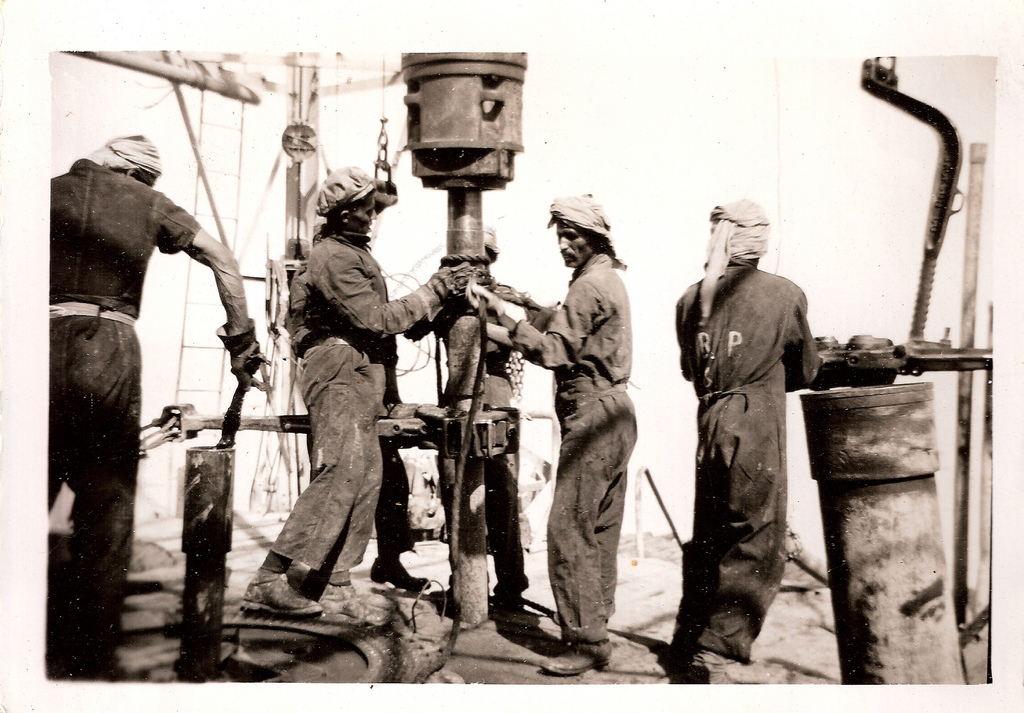Originally published at MintPress News.
RIYADH — As oil prices grow more unstable, Saudi Arabia is facing a future of upheaval and economic collapse.
In October, the International Monetary Fund published a report in October, forecasting the collapse of the Saudi economy by 2020. Last week, Prince Mohammed Bin Salman unveiled the “Vision 2030” plan, a desperate attempt to break what he called the country’s “oil addiction,” according to Reuters.
“The Saudi government is reeling from the plunge in crude oil prices, which left it with a nearly $100 billion shortfall last year. Petroleum accounts for roughly 80 percent of the kingdom’s annual budget,” Maria Gallucci noted in an April 25 analysis of the plan for International Business Times.
The plan calls for the country to sell a stake in Aramco, its publicly-owned oil company, in an international public offering some are predicting could top $2 trillion.
It also outlines other significant changes to the economy, including reforms to employment and immigration law and redirecting the nation’s resources toward new sources of income such as the tourism and the defense industries.
Despite the kingdom’s consistent record of war crimes and human rights violations, Saudi Arabia purchases billions in weapons from the United States and Europe annually. The kingdom needs a steady supply of weapons to fuel extremist groups that it supports throughout the Middle East and wars such as its ongoing assault on Yemen. Rather than continuing to depend on foreign-made weapons, Vision 2030 calls for bringing that spending home, according to Ellen R. Wald, an energy and geopolitical analyst at Forbes:
Ultimately, the Kingdom would like to localize 50% of the military equipment it buys. Specifically, Saudi Arabia seeks ‘direct investment and strategic partnerships with leading companies in this sector.’ To accomplish this, the Kingdom intends to negotiate new military contracts to include local manufacturing elements. While Saudi Arabia may not be building its own brand of fighter jets by 2030, it could certainly become a major supplier of guns, ammunition, or other small scale military equipment by then.
Amotz Asa-El, a senior commentator at Marketwatch, suggested it is unlikely that Saudi manufacturers could compete in the global defense industry:
That makes no sense. What will Saudi Arabia’s workers manufacture that will supply so much of this compulsive arms-purchaser’s buying list: Apache gunships? F-16s? The transition the Saudis seek must start where Japan’s, Turkey’s, and China’s industrial revolutions started: low tech.
Likewise, Jim Rogers, an international investment expert, cast doubt on Saudi Arabia’s ability to develop a robust tourist economy.
“[W]ho is going to go there if they are not allowed to go to Mecca and Medina; they cannot go to the beach; women cannot sit in a restaurant with men,” he told RT. “The restrictions are absurd. Now, if they break down those restrictions, there would be a gigantic tourist boom in Saudi Arabia, at least for a few years, because everybody would like to see it.”
Women are routinely oppressed in Saudi Arabia, including a ban on driving cars, and a Saudi representative recently told the United Nations Human Rights Council that LGBT people have no human rights under international law.
Overall, Rogers cast doubt on the country’s ability to stave off economic upheaval:
I’ve struggled a lot to find an example in the history of a country that was so reliant on one commodity and was able to do a turnaround without a lot of upheaval. … [T]hey normally have to go through a very, very painful industrial and technological reconversion and it takes a lot of time and it takes many, many companies failing before the new economy starts to kick in.
